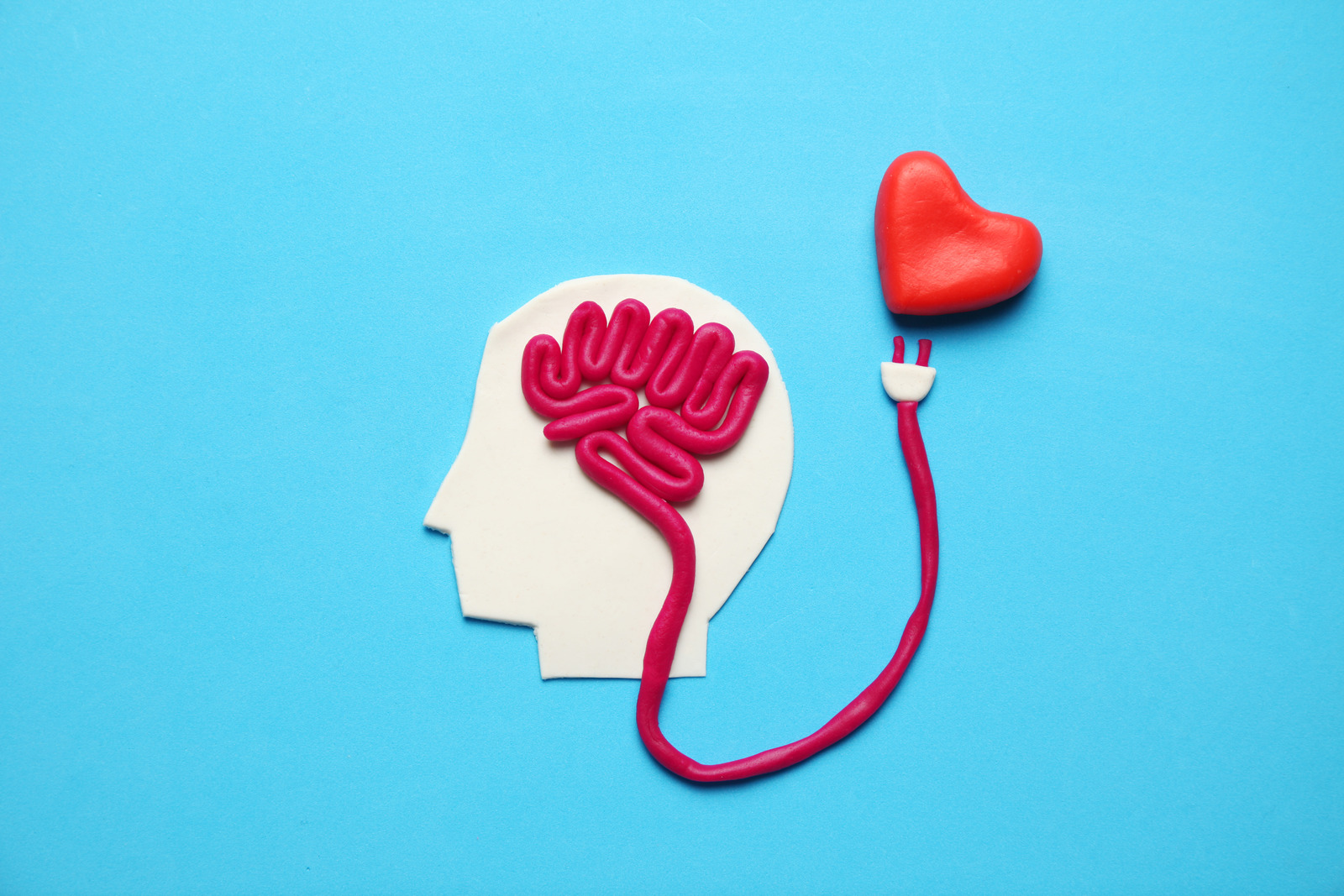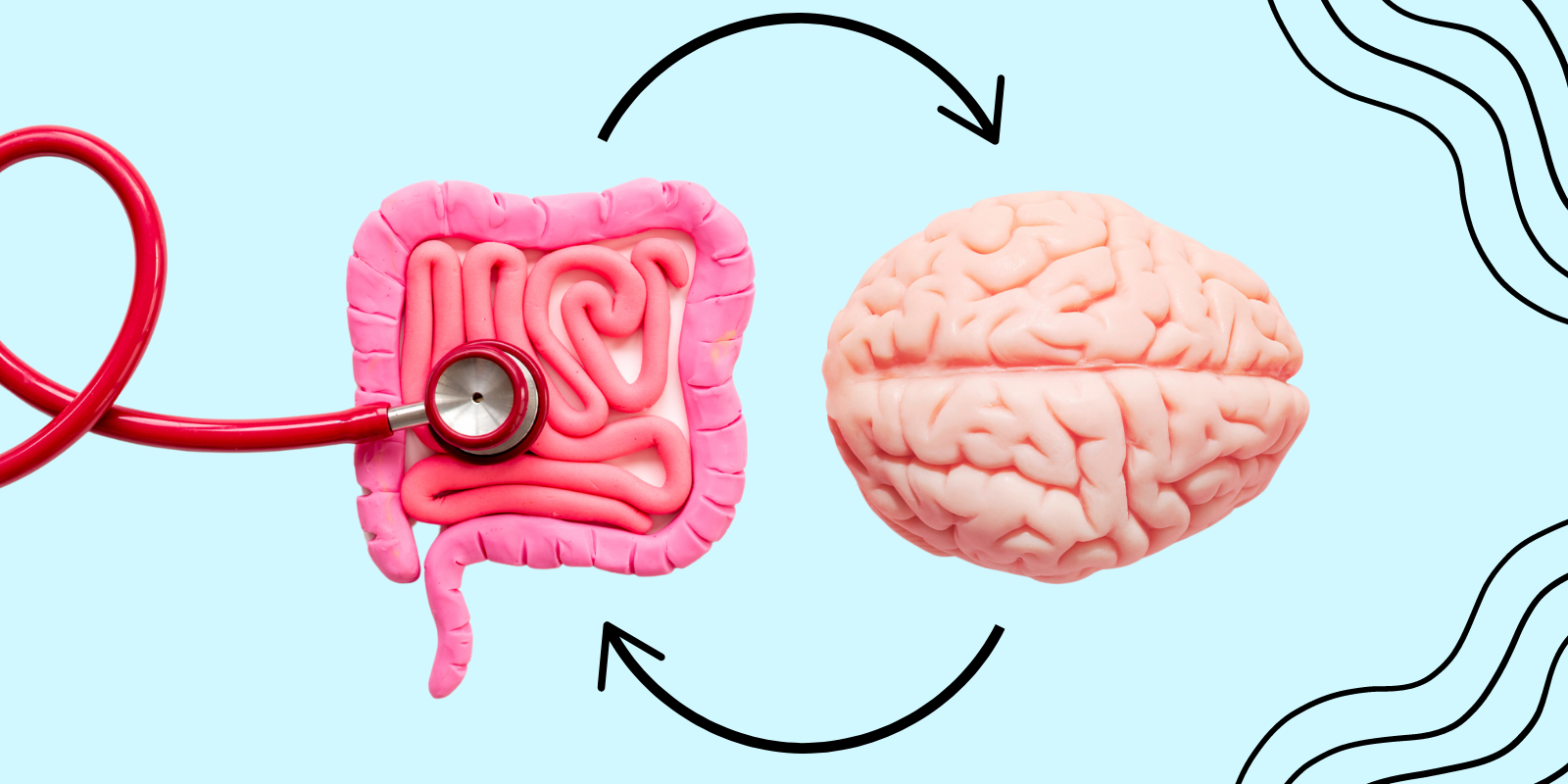 Lifestyle
LifestyleDoes Inflammation Cause Weight Gain? Explained
Uncover the impact of chronic inflammation on weight gain. Take action with lifestyle changes for better health and weight management!

By Laura Dobby

Discover why positive relationships are central to health and longevity, and how loving your gut can drive the production of the "love hormone" oxytocin.

Relationships that have a positive impact on us are critical for health at all stages of life. From birth, a loving relationship between an infant and their primary caregiver is essential for setting the child on a positive trajectory to forming healthy relationships into adulthood. Similarly, maintaining positive relationships into old-age has been shown to buffer stress and even slow signs of ageing. But why is love good for our health? Can love actually make us live longer? In this article, we explore how oxytocin, called the "love hormone," plays a role in the pro-longevity effects of social interaction.
Oxytocin is a small peptide hormone with diverse roles in human physiology. Its name comes from the Greek oxús and tókos, meaning "fast birth," as it was initially found to induce labor in cats. Later research revealed its essential functions in childbirth, lactation, and mother-child bonding. More recently, its role in social behavior and love was brought to light and is still being investigated today.

In adults, oxytocin is released in response to positive social interactions, physical touch, and other "loving" stimuli. When triggered, the hypothalamus synthesizes oxytocin, which then circulates in the brain before entering the bloodstream. Once in circulation, oxytocin binds to receptors in the central nervous system and body, producing beneficial physiological effects such as:
Beyond its immediate physiological effects, oxytocin is increasingly recognized for its potential to improve both mental and physical health.
Neurodegenerative diseases, such as Alzheimer's, are among the leading causes of age-related decline. Recent studies have shown oxytocin to have a positive effect on brain health. Specifically, increased oxytocin levels have been evidenced to improve and restore memory, increase brain volume in key areas, and improve mental health. This indicates that oxytocin from positive relationships could play a protective role against neurodegeneration.

While anti-inflammatory diets promote longevity, oxytocin itself has strong anti-inflammatory effects. It binds to receptors on immune cells like macrophages, reducing the production of pro-inflammatory cytokines (e.g., IL-1, TNF-α). Oxytocin’s ability to suppress inflammation is so potent that it has been shown to help prevent sepsis in experimental studies.
Chronic stress accelerates biological aging. Stress management practices, such as meditation, have been shown to reverse some of these effects. But how does meditation promote stress reduction? Interestingly, oxytocin levels have been observed to increase during meditative practices where individuals focused on feelings of love and compassion. This could explain why spending time with people who promote a feeling of love, can reduce stress. All thanks to our good friend – oxytocin!

Heart disease is attributed to the build-up of fatty deposits in the blood vessels (Atherosclerosis) As we age, the likelihood of developing heart disease increases dramatically. Studies have demonstrated that people who report feeling socially isolated are at much higher risk for developing atherosclerosis and heart disease. Notably, a study in mice found that oxytocin administration reversed the negative effects of social isolation and prevented atherosclerosis development. While human studies are needed, this suggests oxytocin may help protect against cardiovascular disease.

Taken together, the data so far suggests that oxytocin has widespread benefits for health and longevity. These findings underscore the importance of loving relationships for our health and highlight oxytocin as a key mediator of these effects. But wouldn’t it be great if we could boost our own oxytocin levels? Then again, is bio-hacking our own oxytocin supply even possible?
New evidence is emerging for an unconventional way to boost oxytocin levels that doesn’t involve social interaction. Here, the secret lies within the gut…
Our bodies are colonized with a vast array of microorganisms called the microbiome. These commensal species occupy areas of the body such as the skin and the gut without causing disease. The gut microbiome is a densely populated ecosystem housing approximately 1014 microorganisms and is intrinsically linked to human health. Throughout our lives, the gut microbiome undergoes dynamic changes in its composition depending on lifestyle and environmental factors. Here, we will explore how the gut microbiome impacts oxytocin production, whilst giving insight into how lifestyle changes can help boost your own oxytocin levels!
Have you ever heard of the saying “your gut is your second brain”? Let it be known that this is not just a saying! Known as the gut-brain axis, the gut and brain communicate with one another both directly via the vagus nerve and indirectly via endocrine (hormone) signaling and the immune system. An example of gut-brain communication is highlighted by appetite suppression when we are anxious or stressed. Interestingly, the gut microbiome can modulate some of these key physiological effects and influence how peptides such as oxytocin are produced.

Within the gut microbiome, bacteria belonging to the Lactobacilli genera are associated with a healthy gut. This group of bacteria are typically used in probiotic supplements as they help to aid digestion amongst other health benefits. Research in socially isolated mice demonstrated that L. reuteri supplementation reversed reverse neurological deficits and increased oxytocin levels. More importantly, a recent study demonstrated supplementing with a probiotic containing L. reuteri increased oxytocin levels in human participants!
Gut-brain communication is largely mediated by the vagus nerve, which connects the gut and brain. Studies suggest that L. reuteri’s ability to boost oxytocin production depends on an intact vagus nerve. This means that beneficial gut bacteria can send signals to the brain, prompting oxytocin release. While the precise mechanism remains unclear, researchers have identified Secretin, a hormone produced in response to L. reuteri, as a potential mediator of this effect. Secretin has also been shown to stimulate synthesis of oxytocin in the human gut, where it plays a role in reducing gut inflammation—yet another health benefit of oxytocin.
These results emphasise how promoting a healthy gut with beneficial bacteria can help increase oxytocin levels both in the brain and in the gut.

Strong social connections are essential for both physical and psychological well-being. The science suggests that oxytocin, the love hormone, may play a crucial role in longevity by promoting brain health, reducing inflammation, and protecting against heart disease. Maintaining close relationships, engaging in mindful practices, and nurturing gut health can help boost oxytocin naturally.
To answer the question; "Does love make you live longer?" Perhaps it does after all!

By Laura Dobby

Start or continue your GlycanAge journey
Don’t be afraid to reach out to us and ask questions, provide commentary or suggest topics.
Other articles you may like:
 Lifestyle
LifestyleUncover the impact of chronic inflammation on weight gain. Take action with lifestyle changes for better health and weight management!
 Lifestyle
LifestyleCurious about the health benefits of Vitamin D3 and K2? Learn how these two vitamins synergize for optimal wellness. Learn more!